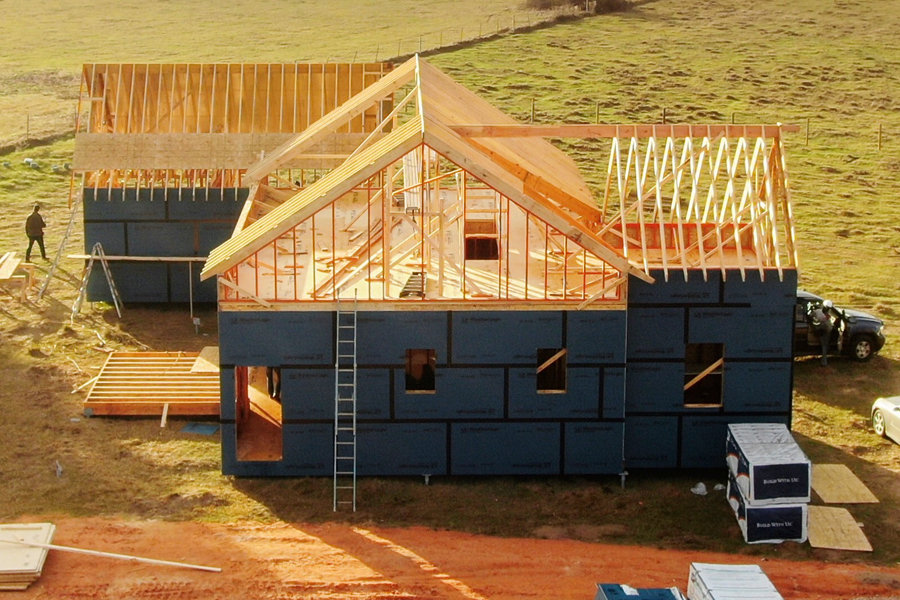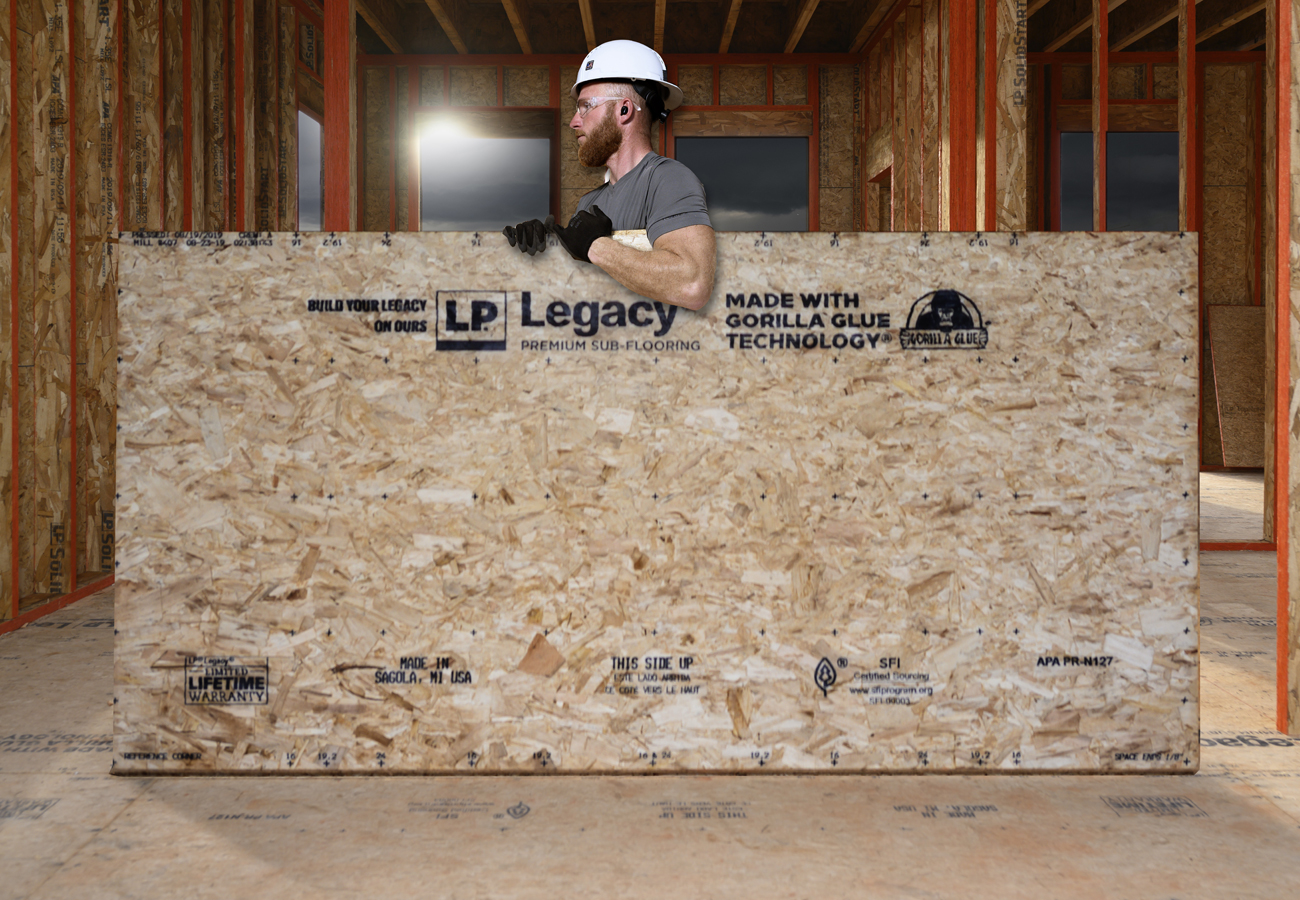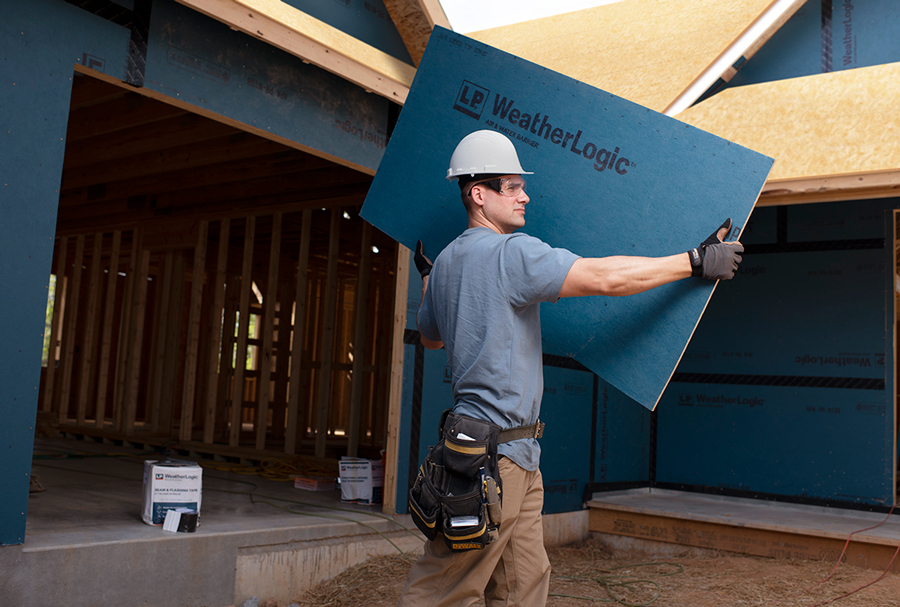Business Advice6 min
Storage and Handling 101: LP® Structural Solutions
Before installation begins, proper storage and handling is critical as you receive products onto the jobsite. When products are handled properly and in accordance with manufacturer’s instructions, you can help avoid damage to new products, use what you order, and help ensure that the product will perform as intended once installed.
Let’s take a look at the basics of proper storage and handling for the LP® Structural Solutions portfolio as well as a few specifics for each product to keep in mind.
LP® Structural Solutions Storage & Handling
No matter the LP Structural Solutions product, there are a few best practices for keeping your materials in great shape once they arrive on the jobsite and wait for installation. Check out the basics to help ensure your products remain ready to install:
Store all products in clean, dry areas off the ground.
If stored outside, cover products with plastic sheets or tarps. Allow for air circulation by keeping the cover open and away from the sides and bottom of the panels.
Don’t drop the panels on corners or crush their edges.
Keep your product neatly stacked with weight evenly distributed.
Inspect the product prior to installation for any damage.

Product-Specific Storage & Handling Instructions
Because the LP Structural Solutions portfolio is a suite of value-added products, there are unique considerations that come with each product when it comes to storage and handling. Let's review the specific storage and handling instructions for each product that help ensure the product's features, such as overlays, stay in great shape for installation.
LP Legacy® Premium Sub-Flooring
Allow panels to acclimate to existing jobsite conditions.
Protect edges to avoid damage to the tongue and groove profile.
Space units at least four inches on all four sides.

LP® TechShield® Radiant Barrier
Avoid damage to the radiant barrier surface.
Protect from moisture prior to and during installation.
LP WeatherLogic® Air & Water Barrier
Do not stack higher than four units.
If possible, store LP WeatherLogic Seam & Flashing Tape indoors in a conditioned environment to avoid temperature extremes.

LP® FlameBlock® Fire-Rated Sheathing
Use caution to avoid damage to the Pyrotite® surface.
Store indoors if possible.
LP NovaCore™ Thermal Insulated Sheathing
Store panels indoors or protected from extended UV and water exposure.
Use a minimum of three stickers placed evenly under each unit. Stickers should be a minimum of 2-1/2 inches wide.
Do not stack higher than three units. Ensure stickers are aligned vertically when stacking units.
Take extra care to ensure the foam insulation is not damaged.
The Importance of Proper Storage & Handling
A great installation doesn't begin when the first nail is driven-it begins when the product arrives on the jobsite. For the LP Structural Solutions portfolio of products to perform at the highest level, each product must be stored and handled with care. When you begin a build by keeping your product in great condition, you'll be off to the best start possible.
For more information and complete installation instructions, check out the LP Structural Solutions hub.
Continue Reading
Resiliency Solutions
5 minIntroducing LP® SmartSide® ExpertFinish® Naturals Collection™: Nature-Inspired Beauty Meets Engineered Performance
We’re excited to introduce the LP® SmartSide® ExpertFinish® Naturals Collection™, a bold new addition to our trusted line of engineered wood siding and trim that delivers the warmth and beauty of nature with the advanced protection and performance builders and homeowners expect.
Labor Solutions
5 minChoosing the Right LP® Structural Solutions Product for Your Build
When it comes to building strong, reliable, and high-performing structures, the materials you choose matter. At LP Building Solutions, we understand that every project, whether it's a single-family home or a multifamily development, requires structural components that meet your needs for strength, durability, and efficiency.
Sustainability Solutions
5 minBuilding a More Sustainable Future with LP Building Solutions
In today's world, sustainability is no longer just a buzzword, it's a blueprint for responsible living and smarter building. As the construction industry seeks ways to reduce its environmental footprint, LP Building Solutions is focused on providing innovative building materials for eco-conscious builders to help reshape what it means to build sustainably
News & Stories3 min
History of Partnership with Gary Sinise Foundation
The LP Foundation is a proud partner of the Gary Sinise Foundation, which supports wounded veterans in several ways. You can learn more about the LP Foundation here.